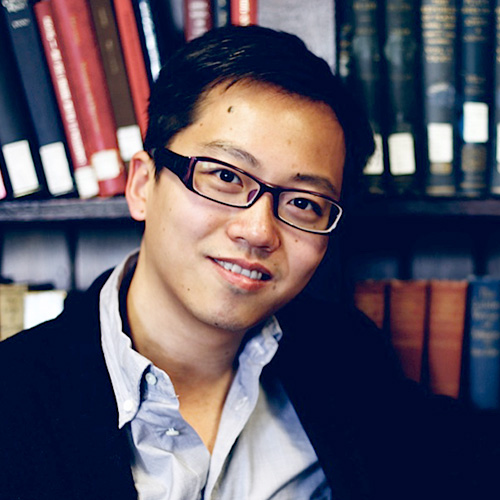Guangchen ChenAssistant Professor
Biography
Guangchen Chen is Assistant Professor of Chinese Literature and Culture in the Department of Russian and East Asian Languages and Cultures. He is an affiliated faculty in the Departments of German Studies and Comparative Literature.
As an interdisciplinary scholar, he works on topics broadly concerning the intersection between literary and material culture, with a particular interest in the culture of collecting. His first monograph, Collecting Antiquity in Modern China: Artifacts and their Afterlives (University of Chicago Press, forthcoming 2026), examines how twentieth-century Chinese collectors of antiquities upended dominant discourses on history and cultural memory. These antiquarians used collecting as a strategy to synchronize historical time and to challenge two dominant yet contrasting ideologies: a regressive idealization of antiquity and an unquestioning trust in linear progress.
At present, he is writing his second monograph on “negative musicality,” a concept frequently articulated in classical Chinese texts, that defines music through negation, i.e., silence, non-emotionality, non-representation, and atemporality. The project investigates how “negative musicality” directly and indirectly influenced European musical modernity by conceptually and acoustically pushing music to its liminal state.
A third book project currently underway is Fu Lei and Fou Ts’ong: An Epistolary Biography, which contains the first English translation of 傅雷家書 (Fu Lei's Family Letters), a seminal documentation of modern Chinese intellectual history. Fu Lei (傅雷) was an eminent translator of French literature who committed suicide during the Cultural Revolution; his son, the pianist Fou Ts’ong (傅聰), was a world-renowned pianist and pedagogue.
Prior to joining Emory, he was a Cotsen Fellow in the Society of Fellows at Princeton University. He received his Ph.D. in Comparative Literature with a secondary field in Music from Harvard University. He was a recipient of the Frederic Sheldon Traveling Fellowship, the Esherick-Ye Family Foundation Grant, and the Junior Fellowship in “Principles of Cultural Dynamics” at Freie Universität Berlin. His scholarship has appeared in CLEAR, Études Chinoises, MCLC, and West 86th.
Monograph:
Modern China: Artifacts and their Afterlives press.uchicago.edu/ucp/books/book/chicago/C/bo266398508.html
Selected Publications
“The Infinite Collection and the Mortal Collector: Lu Xun, Flea Market Revolutionary.” Modern Chinese Literature and Culture (MCLC), Spring 2020.
“The Biography of a Ritual Vessel: On Naming, and the Dialectics of Authenticity.” Études Chinoises, vol. XXXVII-2 (2018): 101-138.
“The Hand, the Gaze and the Voice: Lu Xun’s Transcription of Ancient Inscriptions.” Chinese Literature: Essays, Articles, Reviews (CLEAR), No. 40 (2018).
“Fu Lei and Fou Ts’ong.” A New Literary History of Modern China. Ed. David Der-wei Wang. Cambridge, MA: Harvard University Press, 2017.
Translations
David Damrosch: How to Read World Literature. Chinese Translation. Beijing: Peking University Press, forthcoming 2020. (Subsidized by the Department of Comparative Literature, Harvard University.)
Albert Schweitzer: Johann Sebastian Bach, Volume II. Chinese translation. Shanghai: East China Normal University Press, 2017.
Claire Roberts: Friendship in Art: Fou Lei (Fu Lei) and Huang Binhong. Chinese translation. Shanghai: Zhong Xi Shu Ju, 2015.
